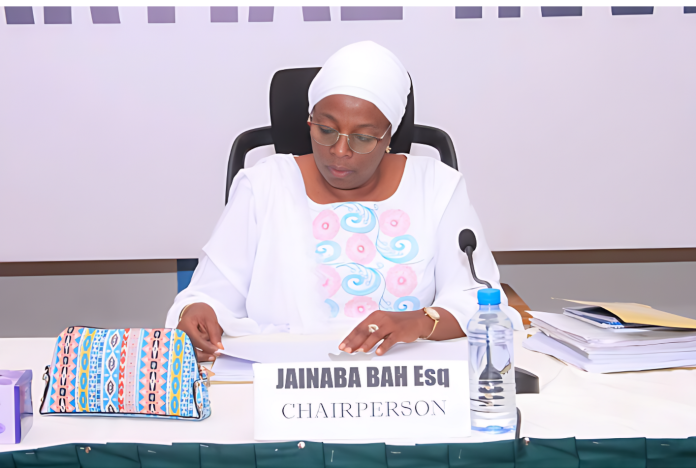By Lamin Fatty
In a frank and far-reaching address during the opening of the Basse Area Council’s third general meeting, Chairman Muhammad Ceesay disclosed that his administration inherited a debt of twenty-four million dalasis (D24 million) upon assuming office.
The meeting, held on April 5, 2025, at the Council chambers in Basse, marked a rare moment of transparency about the Council’s financial challenges and internal dynamics.
“We have inherited a council with twenty-four million dalasis in debt,” Mr. Ceesay said. “But today, we can proudly say that at least 50 percent of that debt has been cleared.”
Despite the fiscal burden, the chairman pointed out eleven development projects successfully implemented under his leadership, emphasizing that equitable service delivery across communities remains a central goal of the Council.
“Our objective is not just completing projects. We want every community in this region to feel the presence of the Council and benefit directly from its initiatives,” he stated.
Addressing swirling public speculation about tensions within the Council’s executive, Mr. Ceesay acknowledged differing opinions among top officials but dismissed any notion of lasting discord.
“I’ve heard the rumors, the concerns,” he said. “There is no rift between myself and the vice chairman. We are aligned in our mission, even if our methods differ.”
Using a metaphor, he continued: “It’s like heading to Banjul—one of us might take the Trans-Gambia Highway and the other the North Bank Road. The route is different, but the destination is the same.”
He described the internal disagreements as signs of a “serious council” committed to debate, consensus, and results.
“What matters is that after every difference, we come back to the table and move forward in unity,” Mr. Ceesay said.
Following the chairman’s remarks, Finance Director Lamin Jassy gave a detailed briefing on the Council’s recent budget bilateral with the Ministry of Lands and Local Government, highlighting concerns raised by central authorities.
Mr. Jassy said the Council presented its proposed 2025 revenue projections but faced questions about whether those targets were realistic, especially given recent revenue collection shortfalls.
“We explained that our digital revenue collection system broke down in September, and since then, revenue mobilisation has been affected,” Mr. Jassy told councillors.
According to Mr. Jassy, ministry officials questioned why the Council did not revert to the General Tax Receipt (GTR), a manual ticketing system. He responded that a standing resolution by the Council prohibits the use of GTR, citing the need for transparent, digital systems.
Still, the ministry pressed the Council to reconsider its stance.
“That was the central point of contention,” he said. “They advised that we review our proposed revenue again, but we told them that any amendment would require approval from this General Council.”
Another major issue raised was the Equalization Grant—intended to ensure balanced development funding between local governments and the state. Mr. Jassy said the ministry advised that the D6.5 million included in the budget under that grant be removed, claiming no legal obligation exists for the central government to disburse it.
“This raises serious questions about the reliability of intergovernmental transfers,” Mr. Jassy said. “That amount is a significant component of our D50 million proposed budget.”
He noted, however, that the conditional grant, traditionally pegged at D2 million, has now increased to D4 million, offering some fiscal relief.
Call for Adjustments, Emphasis on Reform
Mr. Jassy concluded by urging councillors to consider amending the budget in light of the ministry’s feedback and reiterated the administration’s commitment to transparency and systemic reform.
“They encouraged us to use GTR again because it’s legal, but we’re also exploring digital tools,” he said. “Our goal remains modernizing the way we do business while remaining accountable.”
Chairman Ceesay echoed that sentiment, calling on all council members to remain focused on service delivery and regional development, even as they navigate tight budgets and institutional pressures.
“We’ve come a long way,” he said. “But there’s more work ahead—and we’re ready for it.”


















